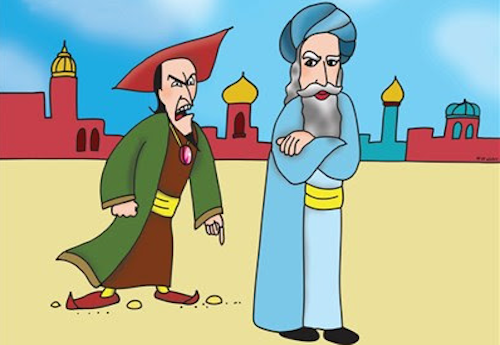Haman’s Shekalim And How Haman became Mordechais’s Slave
03/15/2024 01:28:39 PM
| Author | |
| Date Added | |
| Automatically create summary | |
| Summary |
Parsha Halacha
Parshat Pikudei/Chazak
Haman’s Shekalim and How Haman became Mordechais’s Slave
Sponsored by Ahron and Shifra Gellman in memory of Yaakov ben Dov Ber, Elisheva Batya bas Meyer Zalman, Yoel Dovid ben Aryeh Lev, and Rifka bas Zev. May their neshamos have an aliyah.
Co-sponsored by Avigail and Mordechai Enayatian le’ilui nishmas his father, David Ben Moshe, whose Yohrtzeit is 18 Adar
Parsha Halacha is underwritten by a grant from Dr. Stephen and Bella Brenner in loving memory of Stephen's father, Shmuel Tzvi ben Pinchas, and Bella's parents, Avraham ben Yitzchak and Leah bas HaRav Sholom Zev HaCohen
Surfside Mishloach Manot Project
You can still buy beautiful Shalach Manos for your friends and family while supporting the Surfside Minyan.
Please check us out and share! www.

Matanot Laevyonim
I am collecting for families in South Florida and in Israel to be distributed on the day of Purim. You can contribute by
- Zelle to surfsideminyan@gmail.com
- Paypal to http://paypal.me/
surfsideminyan - Credit card to https://www.surfsideminyan.
com/payment.php - Venmo https://www.venmo.com/u/Aryeh-
Citron - Or cash app https://cash.app/$AryehCitron
We aim to raise enough to assist at least 50 families. Thank you in advance
Click here for a print version of this article
In the Torah portion of Pikudei, Moshe sums up the donations that the Jewish people gave towards the Mishkan and what was done with the donations. Regarding the half-shekel donations, the verse says, “The silver of the counting of the congregation came to 100 talents and 1,775 shekels by the sanctuary weight… The 100 talents of silver were for casting the sockets of the sanctuary and the sockets for the parochet, 100 sockets to the 100 talents, a talent a socket.”
The Purim Connection
According to the Talmud,[1] Haman’s attempt to annihilate the Jews by paying Achashverosh 10,000 talents was thwarted in the merit of the Jewish people having given the half-shekel donations. In the words of the Talmud, “It was revealed and known to the One Who spoke and the world came into being, that in the future Haman was going to weigh out shekels against the Jewish people; therefore, He arranged that the Jewish people’s shekels preceded Haman’s shekels.”
Why the Need to Counter the Shekalim?
The commentaries question why it was necessary for the Jewish people to counter the money that Haman offered in order to “buy” the right to kill the Jews?
Rabbi Yonatan Eibeshitz explains[2] that when Achashversoh accepted the deal but refused to take the money,[3] Haman decided that he would distribute these funds to the poor in order to “bribe” G-d to grant him success in his annihilation efforts. Haman got the idea from Nevuchadnetzar who gave charity to the poor in order to minimize the decree that he become like a beast of the field.[4]
In fact, since Mordechai had purchased Haman as a slave (see the Midrash below),[5]all of Haman’s wealth actually belonged to Mordechai[6] and the merit of Haman’s charitable act went to Mordechai’s credit.[7]
Why 10,000?
The commentaries offer several explanations as to how the 10,000 talents that Haman offered correspond to the amount of half-shekel coins given by the Jewish people:[8]
The Half-Shekel Is One Percent of our Value
One of the explanations is based on the law that the value of an adult male (in terms of how much must be given to the Beit HaMikdash if one declares that he wishes to donate a person’s value) is 50 shekalim.[9] G-d in His kindness allowed us to redeem ourselves by giving the half-shekel instead of 50 shekalim or one percent of our value just as the Terumat Ma’aser (the Terumah from the tithe given to the Levi) was one percent of the produce.[10]
Haman, however, wanted to “buy us” for our actual value. The sum that he offered Achashverosh was therefore one hundred times the sum of the half-shekels in the desert – 10,000 talents instead of 100 talents.[11]
Which Shekalim?
There are various opinions as to which half-shekalim that the Jewish people gave protected them from Haman’s evil plot:
● Some say it refers to the half-shekalim that the Jewish people gave in the desert.[12]
● Others say[13] that it refers to the half-shekalim that the Jewish people gave at the time of Purim. Although they were in exile, they would still give the half-shekel donation in anticipation of the imminent rebuilding of the Beit HaMikdash.
● Another possibility is that they didn’t give the half shekel at that time. Rather, the Talmud is referring to the reading of Parshat Shekalim which G-d considers equivalent to giving the half-shekel.[14]
How Haman Became Mordechai’s Slave
As mentioned above, the Midrash says that Mordechai purchased Haman as a slave. The full story is that Haman and Mordechai were generals in the same army and they were each given money for their supplies. While Haman burned through his funds very quickly, Mordechai spent judiciously and kept his money (mostly) intact. With no money to pay his soldiers, Haman begged Mordechai to share his money with him. Mordechai only agreed if, in exchange, Haman would sell himself as a slave, to which Haman agreed. This is why, many years later, Haman was so angered when he saw Mordechai[15] as Mordechai would remind him that he (Haman) and all his possessions belonged to Mordechai.
Why Didn’t Mordechai Allow Haman to Starve to Death?
The question has been raised, since Haman was a descendant of Amalek and it’s a mitzvah to utterly destroy Amalek, why did Mordechai provide Haman with money when he should have instead allowed Haman to starve to death?
Several answers have been offered:
1) The Rambam holds[16] that the obligation to destroy Amalek is a communal obligation and does not apply to a private person. As such, Mordechai had no obligation to kill Haman. (The Sefer HaChinuch disagrees with the Rambam.[17])
2) Some say[18] that an individual Jew is only obligated to kill individual Amalekites if there are so few of them left that it will effectively wipe them out. But if there are many others who will remain alive, the mitzvah doesn’t apply.
3) Some say that the mitzvah only applies when the Jews are at peace from all their enemies.[19]
4) Others say this mitzvah only applies in the Land of Israel.[20]
5) Still others say that the obligation to destroy Amalek rests on the king and not on private citizens.[21]
6) It’s possible that Haman would have survived anyway, but he would not have had money to pay his soldiers. As such, it was impossible for Mordechai to kill his fellow-general, Haman. So, for reasons of peace, he shared his food with him.[22]
7) According to one Midrash,[23] Haman proclaimed his belief in the one G-d to Mordechai when asking for bread. If an Amalekite observes the seven Noahide laws, some say that there is no longer an obligation to kill him.[24]
8) Others say that Mordechai told Haman that he couldn’t save him because he was an Amalekite and he needed to kill him. Haman responded, in that case, buy me as a slave so that I’ll be considered Jewish and then you can feed me. Some say[25] that this is the meaning of the verse that “He told them that he was Jewish”[26] (the plain meaning of which is that Haman was told that Mordechai is Jewish). This can be interpreted to mean that Mordechai spread the word that Haman was Jewish (as the slave of a Jew). Since Haman hated the Jewish people, the worst possible insult was for someone to call him a Jew.
May we soon merit to donate half-shekalim to the Third Beit HaMikdash!
[2] Quoted by the Chida in Marit Ha’Ayin on Megillah ibid
[5] See Yalkut Shimoni, Nach 1056.
[6] See Pesachim 88b and in many places.
[7] See Sifri, Devarim 283 and Rashi on Deuteronomy 24:19 that when someone’s money is used for tzedakah, they get a mitzvah even if they didn’t know about it. See also Job 27:16.
[8] See Tosfot D.H. VeDachi on Megilah 16a.
[10] See Numbers 18:26.
[11] Rabeinu Bachaye on Numbers 18:26, Exodus 38:25 and Hagahot Yavetz on Tosfot D.H. Vedachi (וְדָחֵי) on Megillah 16a
[12] Tosfot D.H. Vedachi, Megillah 16a as explained in the Hagahot HaBach
[13] Chatam Sofer on Megillah 13a, D.H. Amar
[14] Ibid, D.H. Galuy
[15] See Esther 3:5.
[16] Sefer HaMitzvot, end of Mitzvot Asei
[18] Biur of Ri Perla on Sefer HaMitzvot of the Rasag, quoted here
[19] Rashi D.H Bichnisatam, Sanhedrin 20b
[22] Rabbi Chaim Kanievsky, quoted here
[23] Otzar Midrashim, Esther 5
[24] Rambam, Hilchot Melachim 6:4
[25] Chida writes (Kiseh David, Derush 10 for Shabbat Zachor) that he heard this explanation from a Rabbi.
Wishing you a Shabbat Shalom UMevorach!
Wed, October 15 2025
23 Tishrei 5786
Upcoming Events
Today's Calendar
| Fast of Tammuz |
Friday Night
| Candle Lighting : 7:56pm |
Shabbat Day
| Havdalah : 9:03pm |
This week's Torah portion is Parshat Pinchas
| Shabbat, Jul 19 |
Candle Lighting
| Friday, Jul 18, 7:56pm |
Havdalah
| Motzei Shabbat, Jul 19, 9:03pm |
Fast of Tammuz
| Sunday, Jul 13 |
Join Our Mailing List
Zmanim
| Alot Hashachar | 6:11am |
| Earliest Tallit | 6:37am |
| Netz (Sunrise) | 7:19am |
| Latest Shema | 10:12am |
| Zman Tefillah | 11:10am |
| Chatzot (Midday) | 1:06pm |
| Mincha Gedola | 1:35pm |
| Mincha Ketana | 4:28pm |
| Plag HaMincha | 5:41pm |
| Shkiah (Sunset) | 6:53pm |
| Havdalah | 7:43pm |
| Tzeit Hakochavim | 7:27pm |
| More >> | |
A Home of our own
Ask Rabbi Citron
Surfside Minyan | 8846 Harding ave, Surfside fl 33154
Privacy Settings | Privacy Policy | Member Terms
©2025 All rights reserved. Find out more about ShulCloud







